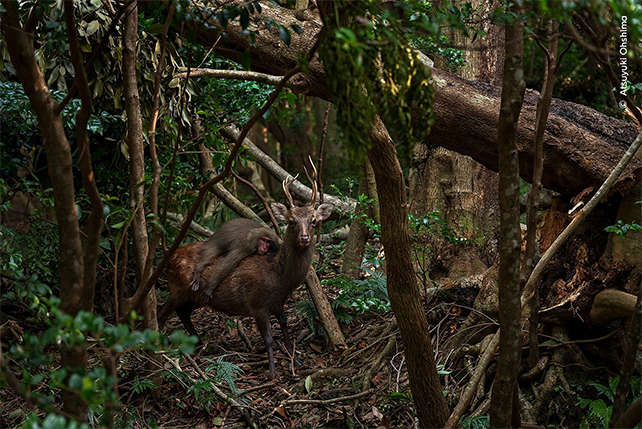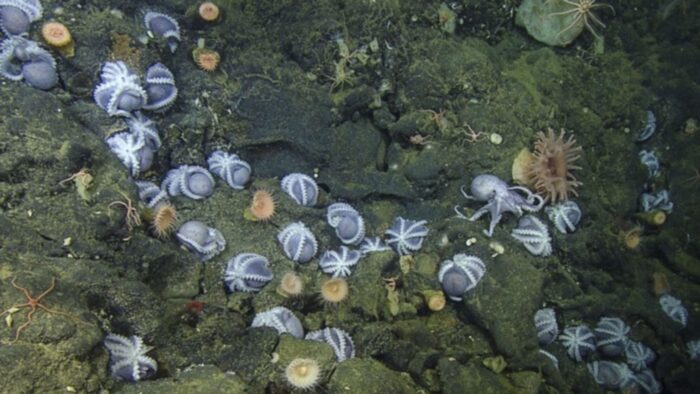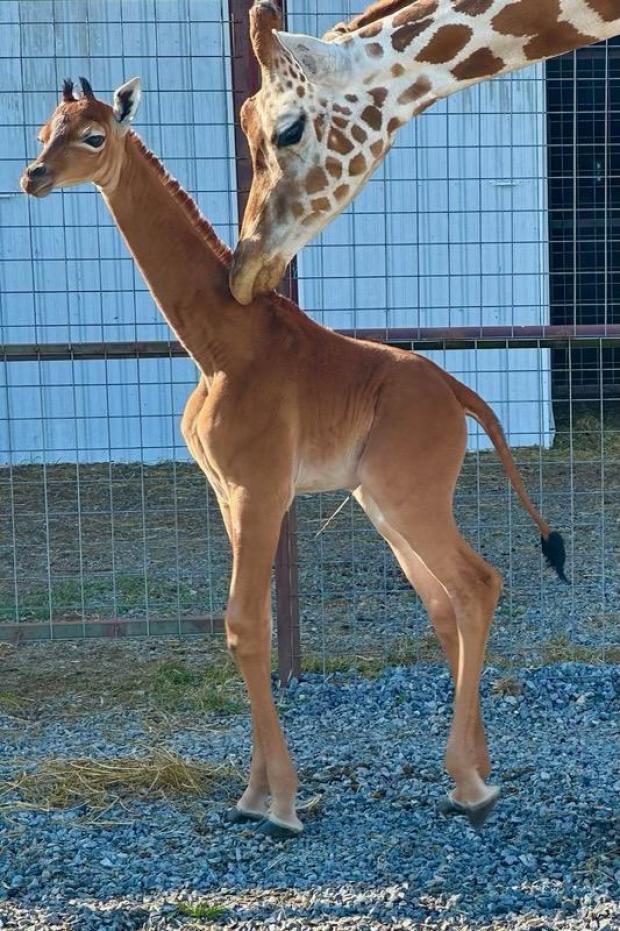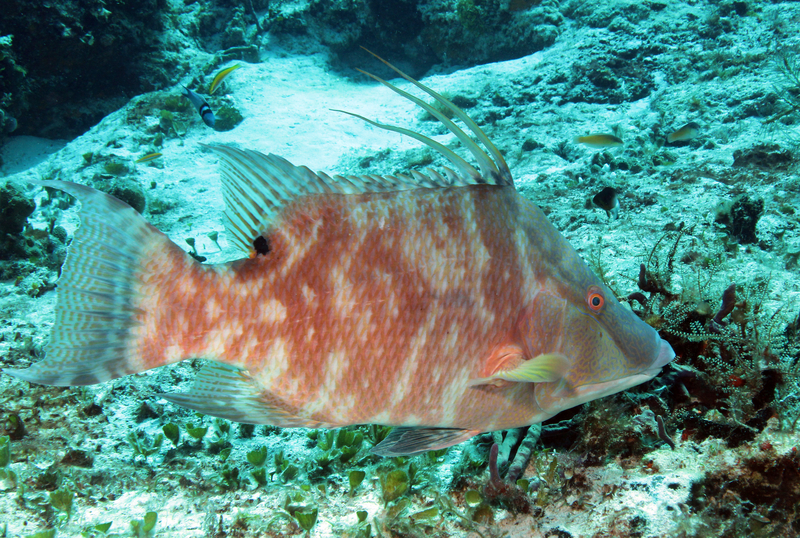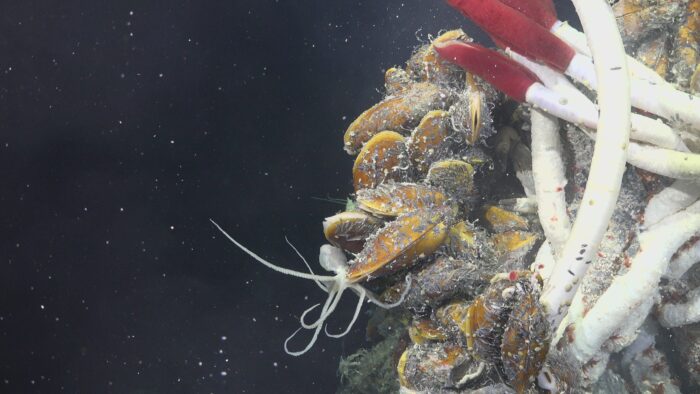One of the greatest signs of animal intelligence is a really fun one to think about.
Play.
Whether rough-housing with a sibling, chasing an object, or leaping and jumping for the fun of it, play serves an important role in brain development and socialization.
In other words, play is about a lot more than just a good time. When we play, we learn.
This is an easy thing to understand when it comes to humans. And it makes sense when we think about some of our mammalian counterparts, like dogs and cats, bears and chimps, dolphins and otters.
But what about insects? What about bees?
Do they play, too?
Research from the Queen Mary University of London is setting about proving that they do. And the evidence is pretty strong.
It's your choice
Using a group of 45 buff-tailed bumblebees, researchers set up a course that gave them some options. At one end was food. The ultimate prize for any animal, right?
But to get to the food, the bees had a choice. They could go straight down the middle, directly to the delicious offering, no strings attached.
Or they could take one of two other paths there, each one filled with tiny wooden balls. On one side, the balls were fixed, or glued, in place, like an obstacle course. On the other, the balls were loose and could be rolled around.
What path did the bees prefer?
Let me roll it
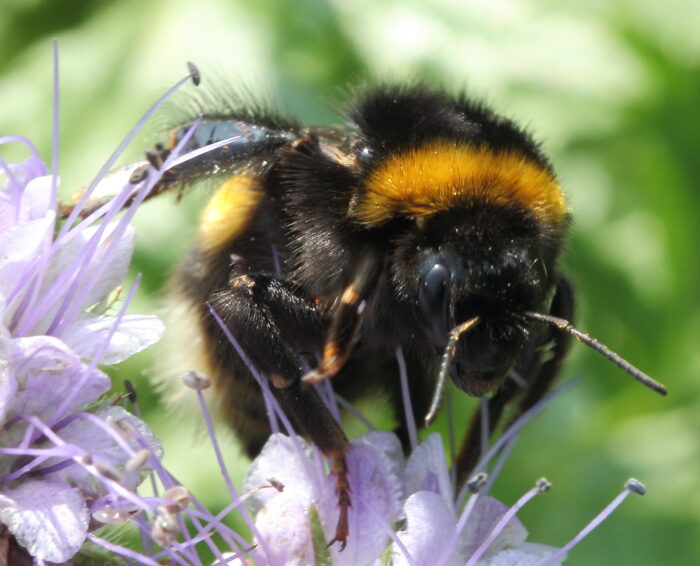
The researchers in this study think that part of why the bees play is because it helps them sharpen their flower feeding skills. (Wikimedia Commons)
According to the research, the study started with the bees pretty much equally choosing between the three paths. Every single one of the bees chose the ball rolling path at least once.
But once the idea of ball rolling became known, most of the bees returned there again and again. Some of them really got into it—individual bees each rolled the balls up to 117 times. And many then returned to the balls again even after they had finished feeding.
Clearly, the balls held a fascination. They became popular!
More play time
Then the researchers added another angle to the experiment. Using a different 42 bumblebees, they let them play in a certain colour of chamber that was full of balls they could roll around. There was no food involved, just the balls themselves.
Then, they presented the bees with a new option of entering one of two different coloured, but empty, chambers. One was a random colour, the other was the same colour as the ball-containing chamber from before. Most of the bees choose to enter the ball-coloured chamber.
They appeared to associate that colour with a place where they could play!
Do they really like to play?
So what can we learn from this? On the surface, it really does appear that these bees enjoy playing with objects.
Not only did they voluntarily choose to engage with rolling the balls, they delayed things like feeding so that they could get to roll the balls. They also slightly changed how they rolled the balls around, which suggests that they found the activity itself engaging and challenging, not just something to do while bored. In addition, the juvenile, or young, bees played more than the adults, which is something that is very common across many animals species (including us!).
Of course, we can't interview a bee to ask them exactly why they are doing something. We can only observe behaviour and try to draw conclusions. But the researchers believe that what they have seen points to bees—as well as many other insects—as having the ability to experience real pleasure and joy.
"We suggest that the behavior observed here has actual hedonic value for bumble bees," they write, "which adds to the growing body of evidence of a form of sentience in these insects."
Watch the video of the bees playing below for yourself. We're sure that you won't look at a bee dancing around a flower in quite the same way again!
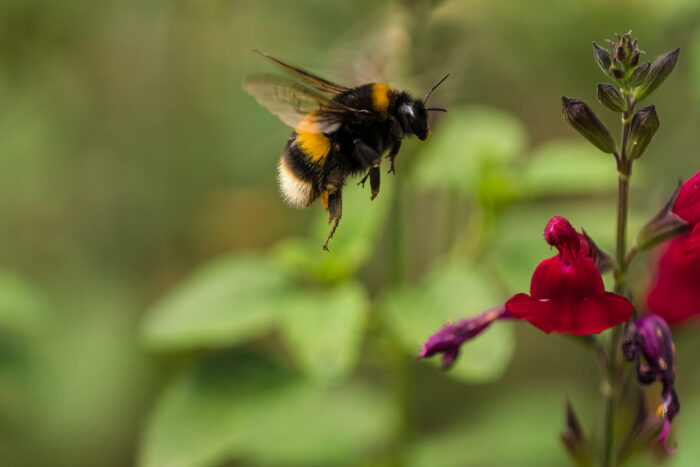 It's easy to think of bees as all work and no play, but this study suggests otherwise. (ID 175528223 © Chrisp543 | Dreamstime.com)
It's easy to think of bees as all work and no play, but this study suggests otherwise. (ID 175528223 © Chrisp543 | Dreamstime.com)
